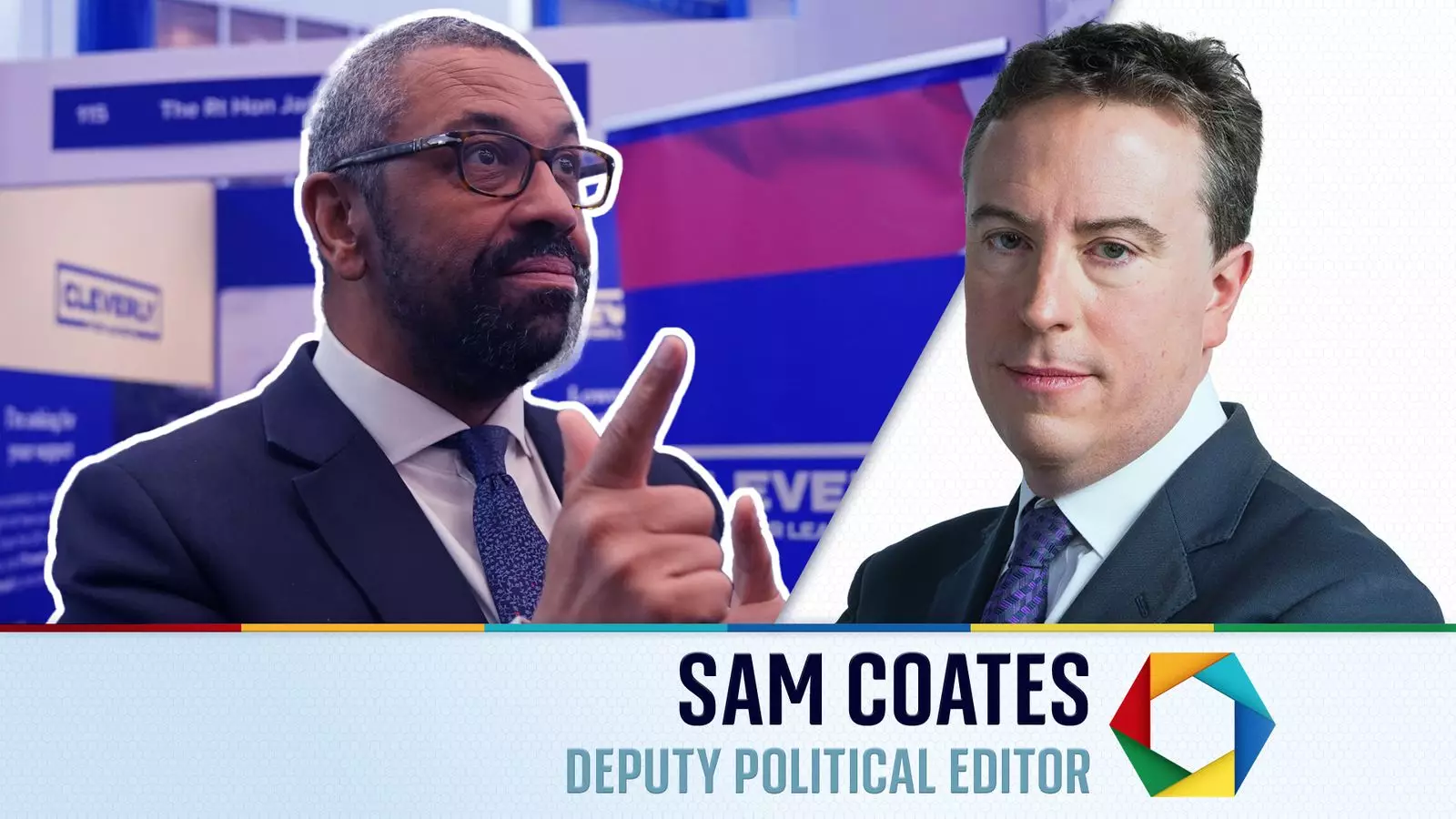As the Conservative Party leadership contest progresses, the atmosphere is charged with both anticipation and uncertainty. The dynamics at play among candidates stretch beyond mere popularity; they delve deeply into the ideological foundations of the party and the aspirations of its members. Most notably, James Cleverly has surged to the forefront, propelled by a charismatic conference address that resonated with party members. Yet, despite this momentum, the path to victory appears convoluted, hinging on the shifting allegiances of an unpredictable electorate.
Cleverly’s ascendance can be largely attributed to his carefully crafted speech during the recent party conference, which was designed not only to inspire but also to create a sense of unity within the party. He effectively highlighted key accomplishments and framed a cohesive vision for the Tory party moving forward. Striking a balance between appealing to various factions, Cleverly has tentatively positioned himself as a candidate for all camps, from traditional conservatives to those leaning more centrist. His ability to articulate a positive message, however, raises questions about whether he can sustain this energy and unite a party that remains deeply factional.
In stark contrast, Kemi Badenoch has launched a calculated campaign aimed explicitly at the party’s right-wing base. Her overtures suggest a strategy that may alienate moderate supporters, particularly those aligned with Tom Tugendhat, who represents a more centrist faction. Badenoch’s insistence that “the right of the Conservative Party now needs to coalesce around Kemi” indicates a willingness to consolidate power, but risks exacerbating divisions within the party, particularly given her past conflicts with members of the European Research Group (ERG).
The leadership race is also marked by the apparent decline in momentum for Robert Jenrick. Once viewed as a formidable contender, Jenrick’s recent performance—a drop from 33 to 31 supporting MPs—signals an erosion of support. Initial expectations of 35-40 votes have not materialized, which raises concerns about his appeal among party members. Critically, as some analysts note, his recent conference speech did not deliver the impact needed to solidify his standing. This decline may embolden rivals who are keen to capitalize on his waning favor, suggesting that the critical eye of the party’s electorate is scrutinizing not just the policy but also the delivery of ideas.
There is speculation surrounding Cleverly’s ability to strategically position himself against Jenrick should he continue to perform strongly in polls. Cleverly’s rise presents an interesting dilemma; if he orchestrates a situation where he faces a diminished opponent in the final rounds, it could dramatically shift the outcomes. Whether this is a deliberate strategy or mere speculation remains to be seen, yet it creates an environment ripe for political maneuvering that could redefine the race’s trajectory.
A crucial aspect of the leadership contest is understanding what Conservative members actually value in their leader. Recent YouGov polling provided insights into the qualities members deem most important. Surprisingly, “integrity and honesty” topped the list, while “conservative values” followed closely. What stands out as perplexing is that only a minor percentage (2%) expressed a primary concern for electability, underscoring a potential rift between party leadership aspirations and broader electoral viability. This poses a significant challenge for candidates; appealing to the party’s core values may conflict with the demands of broader public sentiment, thereby complicating the road to leadership.
As momentum swells and retreats among candidates, the questioning of authenticity and ideological commitment continues. The dynamics of this race highlight a party grappling with its identity in an evolving political landscape. A victory for one candidate may simultaneously illuminate the fractures that persist within the party, reminding all that the journey to leadership is not solely about individual ambition but about navigating a complex web of competing interests, values, and aspirations.
As the impending knockout rounds approach, the stakes invigorate not just the contestants but shape the future narrative of the Conservative Party itself. Ultimately, the question remains: who will emerge as the leader capable of uniting a fragmented party while appealing to the electorate at large? The answers may be as elusive as the momentum itself.


Leave a Reply